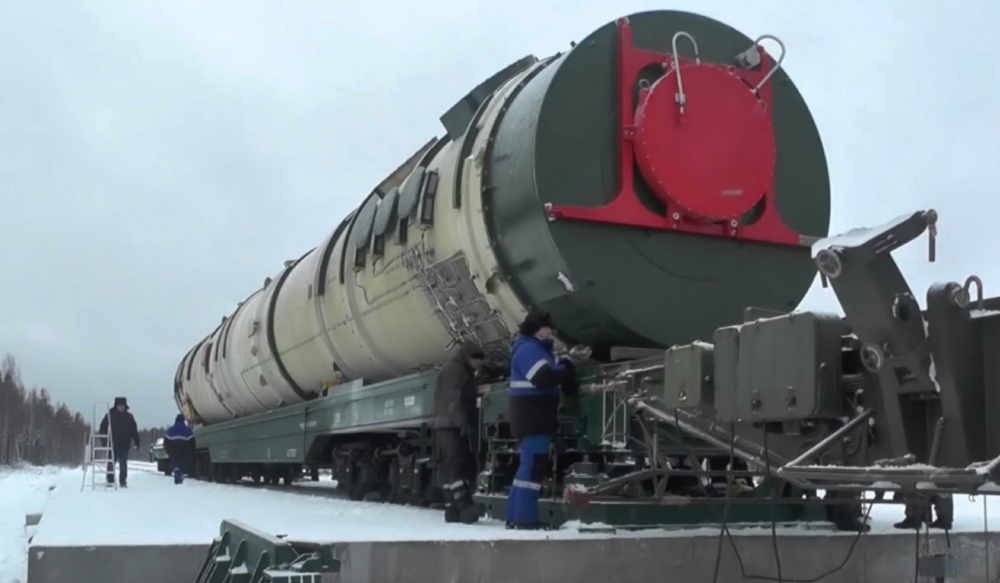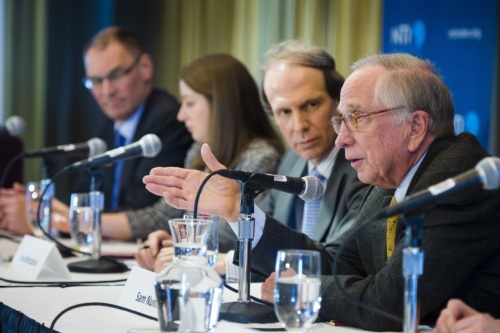
Assessing and Managing the Benefits and Risks of Artificial Intelligence in Nuclear-Weapon Systems
New paper explores the possible applications of AI to nuclear-weapons systems and assesses the benefits, risks, and strategic stability implications.
Sam Nunn Distinguished Fellow
Jill Hruby served as NTI’s inaugural Sam Nunn Distinguished Fellow, completing her year-long term in November 2019. She also served on NTI’s Board of Directors until her nomination in 2021 as Under Secretary for Nuclear Security at the Department of Energy (DOE) and Administrator of the National Nuclear Security Administration (NNSA). She was confirmed by the Senate in July 2021 and sworn in.
Hruby served as the director of Sandia National Laboratories from July 2015 through May 2017. Sandia is a Department of Energy/National Nuclear Security Administration national laboratory with diverse national security missions that include nuclear weapons, cyberspace, energy, non-proliferation, biological defense, and space.
During her 34 years at Sandia, she served as vice president of the Energy, Nonproliferation, and High-Consequence Security Division; leader of Sandia’s International, Homeland, and Nuclear Security Program; technical director in Materials and Engineering Sciences and in Homeland Security and Defense Systems; and held several leadership positions in materials science, weapon components, and micro-technologies.
Hruby has authored numerous publications and holds three patents. Her awards include an R&D 100 Award, the Suzanne Jenniches Upward Mobility Award from the Society of Women Engineers, the US Department of Energy Secretary’s Exceptional Service Award, the National Nuclear Security Administrator’s Distinguished Service Gold Award, and the Office of the Secretary of Defense Medal for Exceptional Public Service. In 2017, Business Insider named Hruby the second most powerful female engineer.
Hruby holds a bachelor’s degree from Purdue University and a master’s degree from the University of California at Berkeley, both in mechanical engineering.
New paper explores the possible applications of AI to nuclear-weapons systems and assesses the benefits, risks, and strategic stability implications.
The first detailed, exclusively open-source assessment of the five new nuclear weapon systems announced by Russian President Vladimir Putin in 2018
Attracting researchers, scientists, and experts to join NTI for a limited term to conduct innovative research and analysis and to bring fresh ideas and thinking


